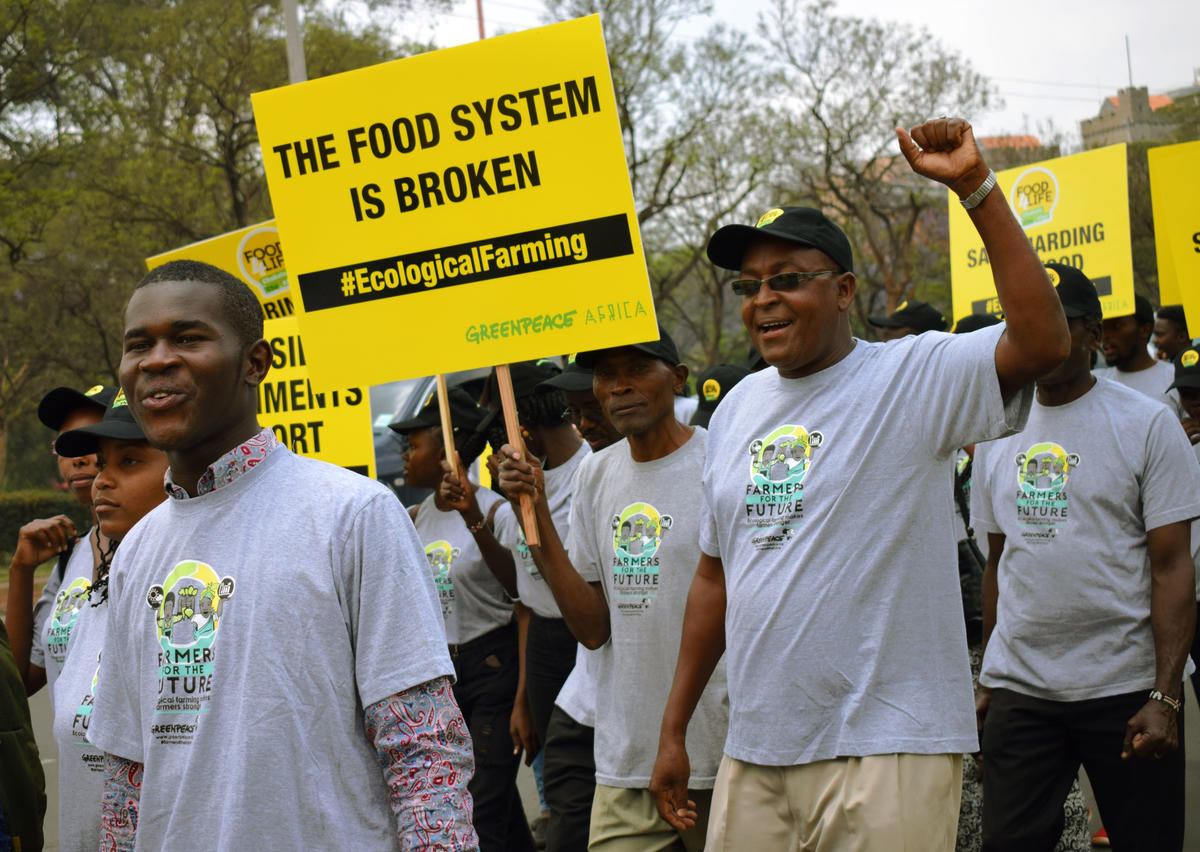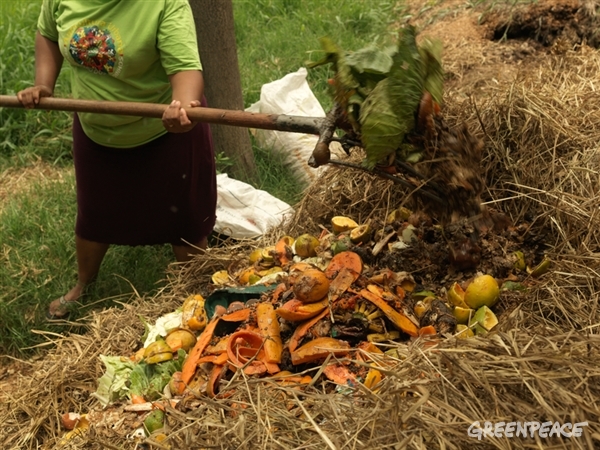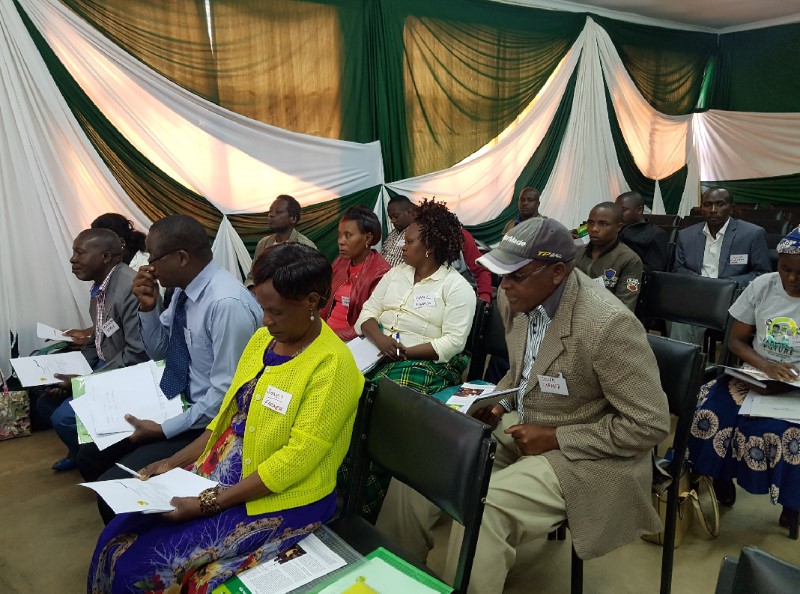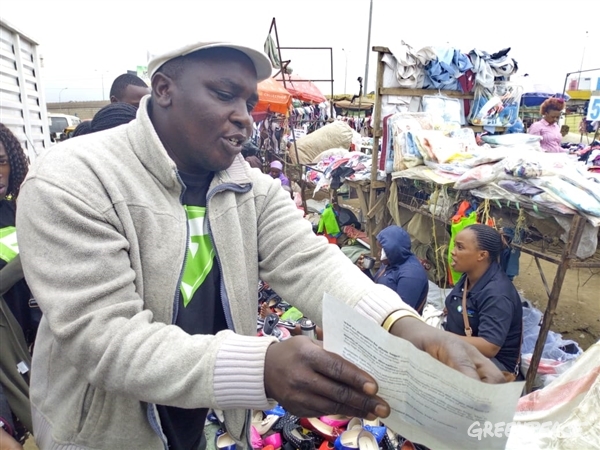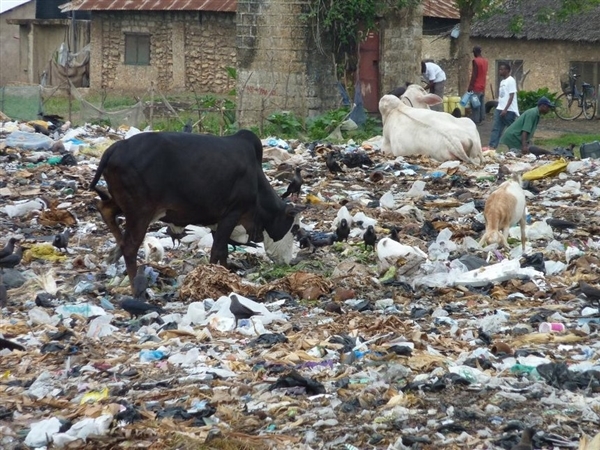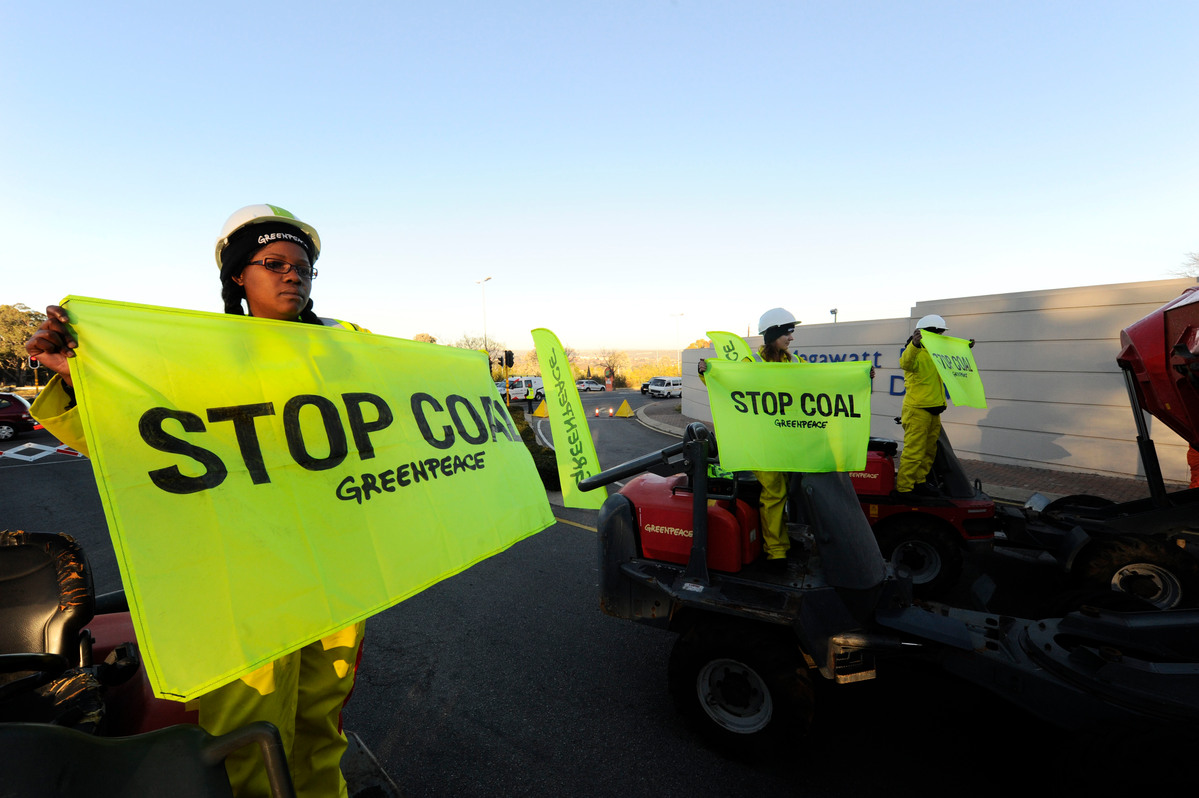All articles
-
Poisoned Sugar Exposes Kenya’s Broken Food System
The worsening impacts of climate change on agricultural productivity in most natural-resource dependent countries like Kenya is introducing a new form of vulnerability that is often overlooked. Increasingly, food safety…
-
Greenpeace Africa Applauds Kitui County Government for Setting Aside Funds Towards Climate Change Adaptation.
Nairobi, 9th August 2018 - In response to the news that Kitui County has enacted a law that sets aside one per cent of its annual budget towards climate change adaptation, Greenpeace Africa’s Food for Life Campaigner Claire Nasike has said:
-
Greenpeace Africa Urges Machakos County Government to Allocate Budget Towards Sustainable Farming
Nairobi, 25th July 2018 - Greenpeace Africa has today handed over a petition to the Agricultural Committee of the Machakos County Assembly. The petition comes after a policy dialogue that was aimed at strengthening interactions between the policymakers; county officials in charge of agriculture and food security; farmers who practice sustainable agriculture and Greenpeace Africa.…
-
Strength in numbers: Sensitising retailers and consumers plastic pollution in Nairobi, Kenya
The Kenyan government’s single-use plastic carrier bag ban came into effect on 28 August, 2017. However, there are still a number of unregulated suppliers in Nairobi’s informal settlements supplying smuggled plastic bags on demand to small scale retailers.
-
Ensure Safe and Healthy Food for Citizens, Greenpeace Africa Urges Kenya’s Government
Nairobi, 03 July 2018: In response to news that some of Kenya’s imported sugar contains dangerous elements such as copper and lead; and that fertilisers sold to farmers in Kenya are reported to be laced with harmful mercury, Greenpeace Africa has called on the government of Kenya to act now - Food for life Campaigner,…
-
Greenpeace Africa commends Uganda for the ban on plastic bags
Nairobi, 7th June 2018 - In a statement read on his behalf on World environment day 2018, President Museveni noted that the continued manufacture, use and poor disposal practices associated with plastics have added to the accumulation of the hazardous materials in the environment. For the second time, the Ugandan President banned the use of…
-
If you can’t reuse it, refuse it!
We live in a contemporary society where technology, innovation, globalisation and human interconnectedness define us - overconsumption is the norm. Now, imagine yourself on vacation along the sandy beaches of mombasa - captured on your cellphone is the beautiful scenery. That is but a dream, for the reality is that the coast line is submerged…
-
Kenya’s Youths Demand Big Corporations to Stop Single-Use Plastics
Nairobi, 18 April 2018 - Ahead of this year’s Earth Day (April 22), youths from Kenya are urging Coca-Cola Central East & West Africa Limited, Kentucky Fried Chicken (KFC) and Java to stop the use of single-use plastics.

